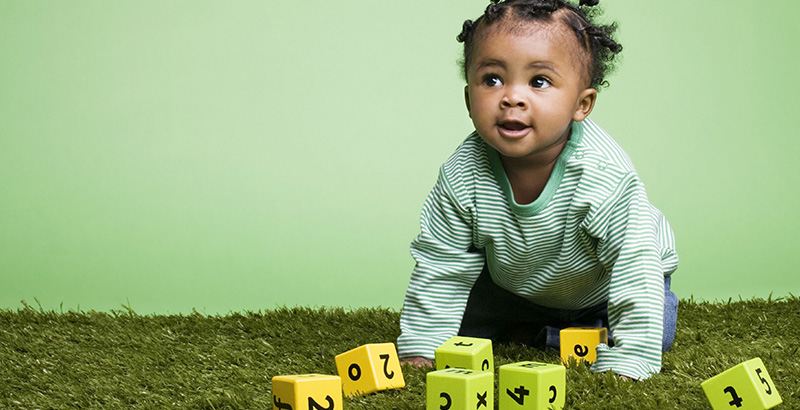
For babies and toddlers every experience teaches them something new. Talking, Reading, Singing and Playing help children’s brain development, socio emotional development, communication skills and so much more. Through playtime activities, parents and caregivers can support children’s development of math skills to help them become active learners and successful once they enter school.
Some different ways you can add math into your everyday routines is to:
- Create or find games where children can sort toys by size, shape, length, weight, height or color, contributing to their understanding of space, measurement, weight, size and shape recognition.
- Teach the concept of time. Timing certain activities can help children begin to grasp the idea that certain activities take longer than others. Time is a crucial component in math and understanding length of time will help their math skills and can also help with teaching patience.
- Show children the meaning of words like “more, less, big, small” to help them gain an understanding of estimation and size. For example, Nolan (30 months) looks at two bagels: one a regular bagel, one a mini bagel, dad asks him “Which one would you like?” and Nolan points to the regular bagel. His dad says “You must be hungry! That bagel is bigger, this bagel is smaller” (Zero to Three). An interaction such as this one is easy but can make a huge difference.
Math filled activities also promote critical thinking and problem-solving. For example: When Carl (15 months old) is playing with a shape-sorter—a plastic drum with 3 holes in the top—he will look at the different chunky shapes, touch, taste, and examine while trying to stuff it in one of the holes. It will be a success for him when the triangle piece falls into the triangle shaped hole and this experience will help develop critical thinking and problem-solving. (Zero to Three).
Math activities can be frustrating for everyone but remember a positive and encouraging attitude will help your babies and toddlers develop math skills they need to succeed. If you find yourself struggling, there are services available to help your family.
Have fun!
Sources:
Help Your Child Develop Early Math Skills. (n.d.). Retrieved from https://www.zerotothree.org/resources/299-help-your-child-develop-early-math-skills
Barbara Harris & Dana Petersen, (n.d.). “Developing Math Skills in Early Childhood,” Mathematica Policy Research Reports fd75b60c192c4c56971092393, Mathematica Policy Research.